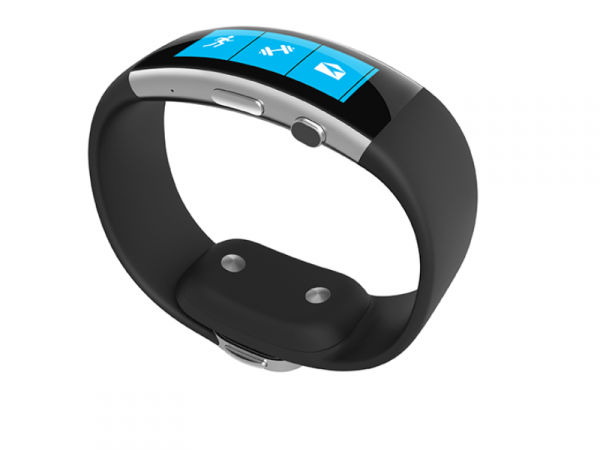
Microsoft just unwrapped the new version of its Microsoft Band fitness tracker aimed at fitness freaks: the Microsoft Band 2. Among the wearable device’s selling points include the refreshed design as well as the much-awaited for barometer, giving users a way to track elevation.
However, the redesigned Microsoft Band returns in a very crowded, competitive market, loaded with the likes of Fitbit and Jawbone, among others. Now, which of these three wearable devices will wow customers across the globe? Let’s take a closer look at how each device compares with its rivals in the market.
Display
The Microsoft Band 2 touts a Corning Gorilla Glass 3 coated OLED touchscreen that goes around the user’s wrist. The Fitbit Charge HR sports a tiny as well as an unobtrusive monochrome screen which is used to show off the present heart rate as well as time. Meanwhile, the Jawbone UP4 forgoes a display. It relies on companion applications and mobile phones to look at the collected data. In this arena, there is no doubt that Microsoft Band wins the battle.
Battery
The Jawbone UP4 seems to be the longest lasting of the three, promising seven days of battery life. Fitbit comes in at the second place in this arena, touting five days of battery life. Meanwhile, Microsoft comes with up to 48 hours of battery life.
Price
In this aspect, Fitbit gets the crown, as it is priced at $149. The Jawbone UP4 is the runner-up, with $199 price tag. Meanwhile, the Microsoft Band is $50 more expensive than the UP4 with a price of $249.
Personal Assistant
This feature is perhaps one of the reasons explaining Microsoft Band’s steep price. This wearable device from Microsoft has Cortana support. Through this feature, the user receives reminders about upcoming meetings or a gentle push to start exercising. Fitbit and Jawbone’s devices, however, do not have personal voice assistants, making the Microsoft Band the only player and winner by default in this area.
Fitness Tracking
While all these devices are packed with tracking features, including step counters as well as heart rate monitors, Microsoft’s product seems to be the best in this aspect as it also incorporates built-in GPS, oxygen consumption as well as UV exposure monitoring. All three devices also feature built-in sleep tracking functionalities.
Bottom Line
In this battle, it seems that Microsoft Band 2 is the champ in most of the aspects. This device is slated to land on Oct. 30 and, for excited aficionados out there, is already available for preorder.